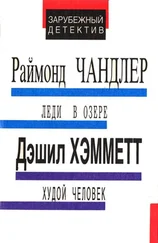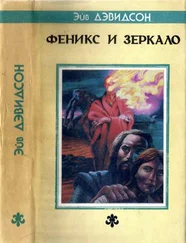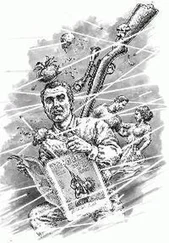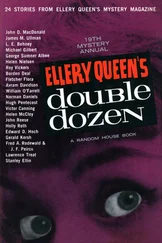Аврам Дэвидсон - Peregrine - primus
Здесь есть возможность читать онлайн «Аврам Дэвидсон - Peregrine - primus» весь текст электронной книги совершенно бесплатно (целиком полную версию без сокращений). В некоторых случаях можно слушать аудио, скачать через торрент в формате fb2 и присутствует краткое содержание. Год выпуска: 1971, ISBN: 1971, Издательство: New York : Walker, Жанр: sf_all, на английском языке. Описание произведения, (предисловие) а так же отзывы посетителей доступны на портале библиотеки ЛибКат.
- Название:Peregrine : primus
- Автор:
- Издательство:New York : Walker
- Жанр:
- Год:1971
- ISBN:0802755461
- Рейтинг книги:5 / 5. Голосов: 1
-
Избранное:Добавить в избранное
- Отзывы:
-
Ваша оценка:
- 100
- 1
- 2
- 3
- 4
- 5
Peregrine : primus: краткое содержание, описание и аннотация
Предлагаем к чтению аннотацию, описание, краткое содержание или предисловие (зависит от того, что написал сам автор книги «Peregrine : primus»). Если вы не нашли необходимую информацию о книге — напишите в комментариях, мы постараемся отыскать её.
Peregrine : primus — читать онлайн бесплатно полную книгу (весь текст) целиком
Ниже представлен текст книги, разбитый по страницам. Система сохранения места последней прочитанной страницы, позволяет с удобством читать онлайн бесплатно книгу «Peregrine : primus», без необходимости каждый раз заново искать на чём Вы остановились. Поставьте закладку, и сможете в любой момент перейти на страницу, на которой закончили чтение.
Интервал:
Закладка:
Stains upon the marble of the building they sought and finally found testified—though the letters which had caused the stains had long since either fallen or been ripped off—testified that The Baths had been the gift of a public-spirited citizen named P. Mendipidudus Something-or-other, or something like that, as a memorial to The Divine—but here zeal had hacked away the Imperial Name and stone, effacing more than that mere hint of former heathenry. And, sure enough, hard by the side of the building, was a group of citizens engaged in an intense, though low-voiced discussion of what must surely have been Divine Theology.
As the three approached, one of the citizens, a wall-eyed fellow with a pot belly, hissed something, and the conversation ceased immediately. And began almost at once, after the citizens had swiftly scanned the newcomers, in a rather louder tone.
“Assuredly,” said one of them, “The Father and the Son, Substance and Essence,” he said, noncommittally.
“And the Holy Spirit,” added a third; but as to the procession of that Spirit, he carefully said nothing.
“What deed of Christian kindness and of corporal or, better yet, of spiritual mercy, may we do for you, strangers as I perceive you all to be,” enquired the squinter. Peregrine held forth the talleys. The wall-eyed man disdained to partake of the guffaw which united his fellows. “Ah, to be sure, to be sure,” he said reflectively. “Now, there is only one man who can be of help to you in this matter, and as the Treasury—formerly The
[ 54 ]
peregrine: primus
Baths, and a dreadful scene these latter must have been, to hear tell, multitudes concerning themselves with a merely physical cleansing, regardless of the filthy states of their unregenerate and certainly damned souls—mind you, I speak but by hearsay, having had the good fortune to have been born into a godly family in my native Cappodocia, where—”
“Speak no more,” said Peregrine, “for you must certainly be that Cornelius of whom I have heard mention. Assist us, I pray, and you will certainly not find us ungrateful.”
It was probably doubtful if they could have found their way, unguided, through the vast and only partly-ruinous complex which had once housed The Baths, provincial structure though it was. And, thought Peregrine, if it had been full of all the money there was room for, rich indeed would have been whoever currently Caesar was in that particular area of the Central Roman Empire; but the only sign of usage which he was able to observe was in the one room whose pool still held water, and here—the broken roof admitting sunshine—an industrious Armenian was raising live carp for the Friday market. However, there were ample signs, such as here an office outfitted with all the needful equipage, and there a stack of tablets, and elsewhere a wall covered with cabinets of which the pigeon-holes were full of papyrus record-rolls—all, all covered with loops of dusty cobwebs—that once, at least, after the building had ceased to function as a bath it had for a while at least functioned as, it might be, a treasury.
But, unless the bats which hung in clusters on the walls, and the rats which scuttled away from the clutters of ruined documents in the halls, unless these creatures themselves might be deemed to hold treasures of a sort, it functioned so no longer.
At length they found themselves in a vaulted chamber a deal less dusty then the others, and there, surrounded by well-ordered stacks of tablature and rolls of papyrus which seemed comparatively clean, they observed an elderly man, himself of only slightly dusty appearance, who was chanting aloud from an Apocryphal Gospel. He looked up, briefly, without ceasing his encantation, and as this seemed to bid fair to continue forever, Peregrine began impatiently to rattle the few small coins which he still had in his hands upon the chance of meeting yet another useful beggar.
“—and in the Name of the Father and of the Son and of the
Holy Spirit, aeons without number, sator arepa, what can I do for you gents?” inquired the clerk, placing an embroidered bookmark in his codex, and rising and coming forward briskly enough for one of his age and stiffness.
“This is the office of the Imperial Treasury dealing with the redemption of talley-sticks given in exchange for beasts and gear and armor, weaponry, and such, such having been commandeered in the Imperial Name vice the commissariat-major, is it not, Menander Protector?” asked Cornelius the Cappadocian.
Menander Protector smiled a thin smile, and began to rub his scrawny mitts together. “Certainly, certainly, under the terms of Imperial Rescript LXCVII, An. MCVI, sub. cap. ut. fut. CCCXXVVVIII,” he said, “Next!”
Peregrine, nudged, stepped forward and handed over his bundle of talley-sticks. The ancient clerk nodded, rummaged in a vast chest rather like a second-hand sarcophagus of the unregenerate times, came up with another bundle of similar sticks, and set to work matching them: at length found the proper matches, notch for notch and slit for slit. Then he began to peer at the parchment tags attached to the office set. “Well, well, these seem all in order,” he said, at length, satisfied. And, putting them down, he began to walk back to his chair and his book.
“Hoy!” said Peregrine. The clerk waved his hand. “Do not be impatient, young man,” he urged. “All in good time. As soon as I have finished the next chapter of this quasi-canonical text— though I have little doubts but that the next synod or Council will admit them to full canonicity—I shall make the necessary and official entries into the proper set of tablets.”
Cornelius nudged Peregrine, and gave him a look. To follow the look from its source in the Cappadocian’s eyes was a task which might have baffled Archimedes qnd taxed Euclid, but it seemed to Peregrine, going more by intuition than by pure mathematics, that the look was directed and had reference to the hand of his which held the money. He emptied it upon the marble counter with a clatter, exclaiming, under his breath, “Christus Invictus!”
At once the ancient clerk Menander spun about on his boney heel. “Christus Invictus!” he echoed. “And, observing you to be a youth of unquestionable piety and doubtless purity of doctrine, and may I notas well attend to your duties immejitly, thus
releasing you from this material and illusory world the sooner to attend vespers at the Pro-Cathedral, formerly the Temple of an Abomination.” And, muttering to himself, he set to copying the inscriptions of the papyrus tickets attached to the office set of the talley-sticks into an enormous set of tablets; in the course of which task the heap of coins somehow disappeared without sound or trace.
“Done and done and done!” he declared at last, looking up, brightly. “And now do you be off to your orisons and I back to my book. Ahah and hahah, had I but followed both orisons and books in my youth’s entirety to the complete exclusion of clerkwork, might I not by now have gained a martyr’s crown? or at least a bishopric? Eheu; observe, young man, the lesson implicit. Fare thee well.”
But Peregrine, owing no doubt to his essentially pagan nature, said, “But what of the parchment scrip which we are to change for coin of the realm at the Imperial Bursary?”
The old man raised his eyebrows at this, but still stayed his retreat. “The parchment scrip? Well, well, perceive the as yet undiminished fire of youth, too often allowed to run unrestrained and thus become mere carnality. Other young men—I have certainly no reference to a godly one such as yourself —other young men would no doubt be all afire to obtain their coin, and for what? Not merely for the forbidden purpose of laying up treasure on earth, but for the equally condemned purpose of squandering the aforesaid coin in the multitude of brothels and winecellars with which this insufficiently Christian city alas abounds; little do they reck, as they pay monies to the probably pagan harlots to strip them of their already insufficient clothing in order to perform sundry fornications upon them—” Claud at this point began to move restlessly from one foot to another, Peregrine sighed, and even the elderly Appledore was observed to twitch a little bit. “—of the Hell-fire which certainly awaits them; avoidable, however, by a sufficient repentance, mmff, want your parchment scrip do you?”
Читать дальшеИнтервал:
Закладка:
Похожие книги на «Peregrine : primus»
Представляем Вашему вниманию похожие книги на «Peregrine : primus» списком для выбора. Мы отобрали схожую по названию и смыслу литературу в надежде предоставить читателям больше вариантов отыскать новые, интересные, ещё непрочитанные произведения.
Обсуждение, отзывы о книге «Peregrine : primus» и просто собственные мнения читателей. Оставьте ваши комментарии, напишите, что Вы думаете о произведении, его смысле или главных героях. Укажите что конкретно понравилось, а что нет, и почему Вы так считаете.






